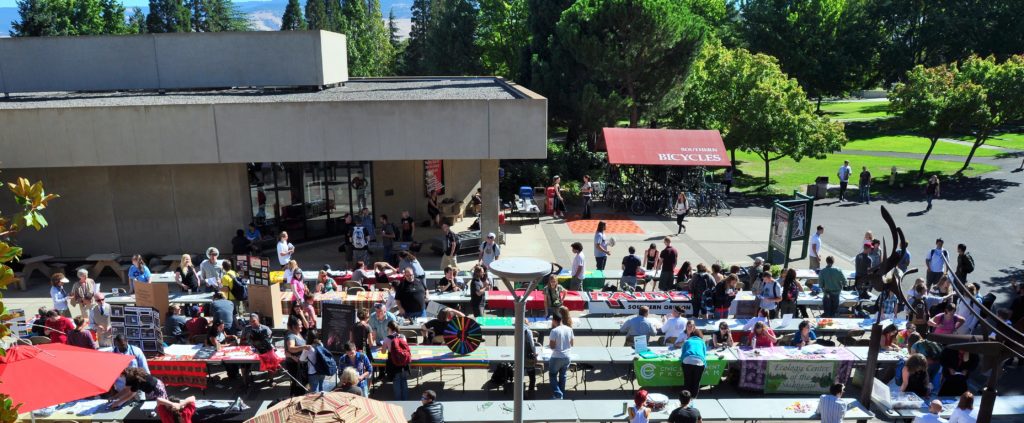ASHLAND, Ore. – On Feb. 13, SOU’s Education Abroad Advisor Ariel Bloomer learned that the Student Fee Allocation Committee allocated $0 of National Student Exchange and Study Abroad’s requested budget. Bloomer requested $9,560 from student fees to support both programs.
About half of this budget represents SOU’s participation in National Student Exchange. NSE’s portion of the budget includes the almost $1,000 fee to participate in the consortium, and travel to the conference, which has mandatory participation to be part of the exchange.
This program allows exchange of students within North America and U.S. territories with in-state tuition. “Students have used it to explore other areas of the US for where they might want to live in the future. Students use it for exploring communities that we don’t have here, there are Historically Black Colleges and Universities that participate in the exchange,” Bloomer said.
The other portion of this budget accounts for the office’s Study Abroad Peer Advisors. Bloomer budgeted for three part-time student employees, working about six hours a week each. Without this budget allocated, only work-study eligible students could have these positions. The office currently has three peer advisors, including Emily Frisbee and Danielle Dugan.
“We want to hire students who did go study abroad and then came back. They can share their experience so that the students who are going abroad next year have the most detail. We’re already limiting the options by saying we want study abroad returnees, and then if we have to say they can only be work-study, it’s an even smaller amount,” explained Dugan.
“Right now there’s three of us, so that’s really great, and we all are scheduled so that Monday through Friday there’s somebody here from 9-12 and 1-4. But with those cuts, that means that we might have only even half of those or three fourths of those hours. Sometimes it’s hard enough for students to meet with us anyways,” Frisbee said.
“There’s something to be said about students coming back and readjusting. I spent a whole year abroad, coming back there was a reverse culture shock and some sadness. Getting this position helped me so much because I was able to meet other people who went abroad and international students, I get to keep that stuff in my life. It made the whole transition so much better,” Dugan said.
Bloomer also explained the risk of not having peer advisors. “If we don’t have the peer advisors to help students overcome financial barriers to study abroad, and talk to students about scholarship opportunities, then we’re going to have fewer students who are Pell eligible and work study eligible studying abroad…it really can create a downward cycle for study abroad completion,” Bloomer said.
With today, Feb. 24, being Study Abroad’s deadline, Bloomer and the peer advisors are trying to prioritize. “This past week has been about trying to communicate how important this is and make myself available, while at the same time also needing to work through a lot of stuff that’s going on logistically with our study abroad applications. Those deadlines are looming, and I don’t want any of that to suffer from this kind of crisis that’s happening elsewhere.” Bloomer explained.
The Student Fee Allocation Committee has finished hearing appeals. The committee will meet tomorrow, Feb. 25 at 5 p.m. in SU 313.



